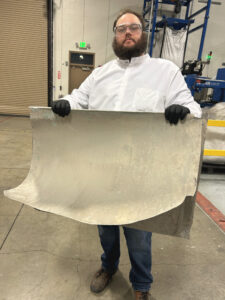

What’s New at Aqua Metals
An Inside Look: Over 100 Industry Leaders Tour Our Innovation Center as Part of NAATBatt’s Recycling Workshop
On July 31st, we had the privilege of hosting more than 100 industry professionals at our Innovation Center and Demonstration Plant during the NAATBatt International
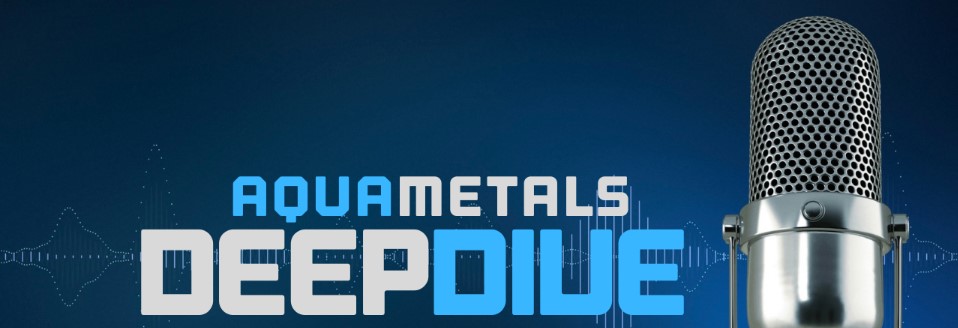
DeepDive Episode 5: Expanded Recycling Vision
The latest episode of the AQMS DeepDive Podcast on upcoming plans for lithium battery recycling.
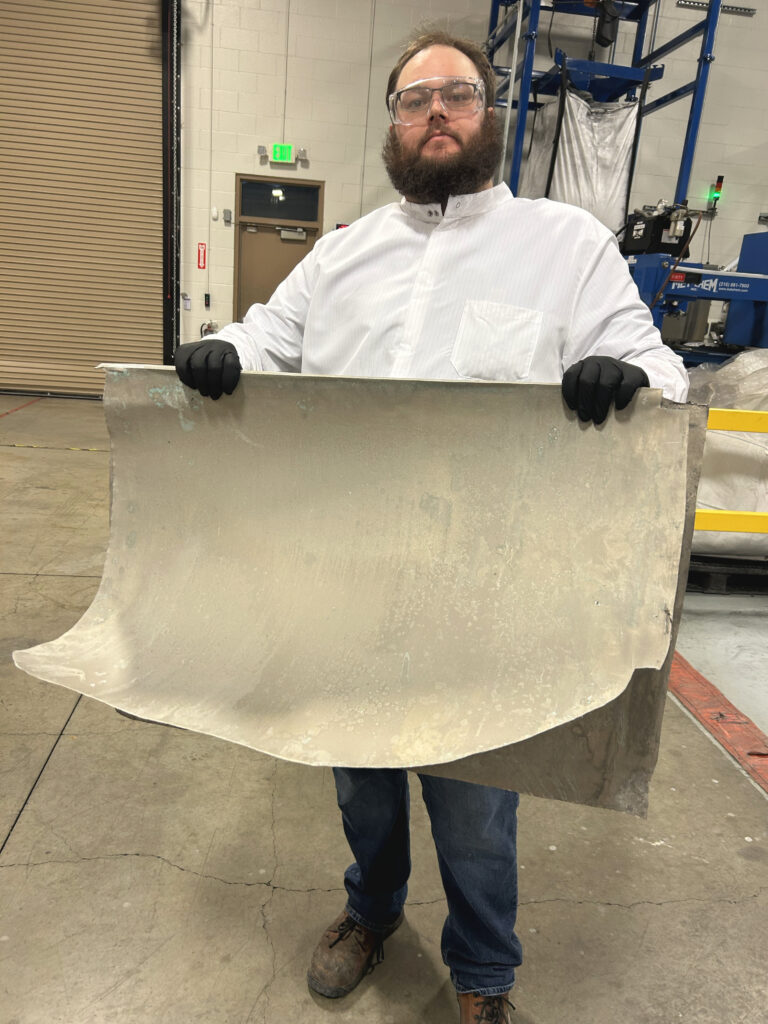
Closing the Year with Major Progress in Sustainable Battery Recycling
As 2024 comes to a close, Aqua Metals is proud to share our recent achievements in advancing the future of sustainable lithium battery recycling.
Aqua Metals: Creating a Safe, Sustainable Energy Future
Aqua Metals is the only company to have demonstrated a commercially proven, sustainable, closed-loop metals recycling process capable of producing some of the world’s highest-purity battery materials.
Our Innovation Center is advancing low-carbon metals recycling technologies designed to reduce environmental impact, deliver competitive economics, and improve worker safety.
Together, these efforts position Aqua Metals as a leader in clean metals recycling and a driving force behind the next generation of battery materials refining.
Lithium Ion: Powering the New Energy Era
Aqua Metals applies its water-based AquaRefining™ technology to lithium-ion batteries and battery materials – advancing a low-carbon recycling and refining approach designed to support commercial-scale operations.
The process is engineered to produce high-purity battery metals with competitive operating economics, while avoiding the furnaces, high temperatures, and emissions associated with conventional smelting and refining.
PRESS RELEASES
 Aqua Metals, Inc. (AQMS) News
Aqua Metals, Inc. (AQMS) News
- Aqua Metals Reports Third Quarter 2025 Results and Highlights Continued Progress Toward Commercialization of AquaRefining™ Technology November 12, 2025
- Aqua Metals and Westwin Elements Sign LOI for U.S.-Produced Nickel Carbonate Supply November 10, 2025
- Aqua Metals to Provide Quarterly Business Update on November 12, 2025 November 4, 2025
- Aqua Metals and MOBY Robotics Sign MOU Establishing Collaboration Framework for Sustainable Refining of Deep-Sea Critical Minerals November 3, 2025
IN THE NEWS
Aqua Metals Initiates $33M Loan Agreement To Fund Commercial-Scale Lithium Battery Recycling Plant
BENZINGA – In a press release on May 15, Aqua Metals signed a non-binding term sheet with “one of the world’s largest privately held companies.”
The Hidden Economic And Environmental Cost Of EV Batteries And How To Create A Sustainable Circular Economy
BENZINGA – Benzinga’s new article covers the hidden costs fo EV recycling and how Aqua Metals plans to build a sustainable circular supply chain.
Is EV Battery Recycling Ready For Prime Time?
EV PULSE – From smartphones to EVs to backup power, lithium-ion batteries run much of our modern world. But we’ve got a big problem on
Proven Technology with Lead Recycling
Aqua Metals’ patented and commercially proven AquaRefining technology is a cleaner and more cost-efficient lead recovery and recycling process.
This room-temperature, closed loop, water-based process is fundamentally nonpolluting, cost-efficient and produces the purest lead ever made from a recycling technique. The first licensed AquaRefinery is being established in Taiwan, one of the fastest growing lead-recycling regions.
AQUAMETALS MILESTONES
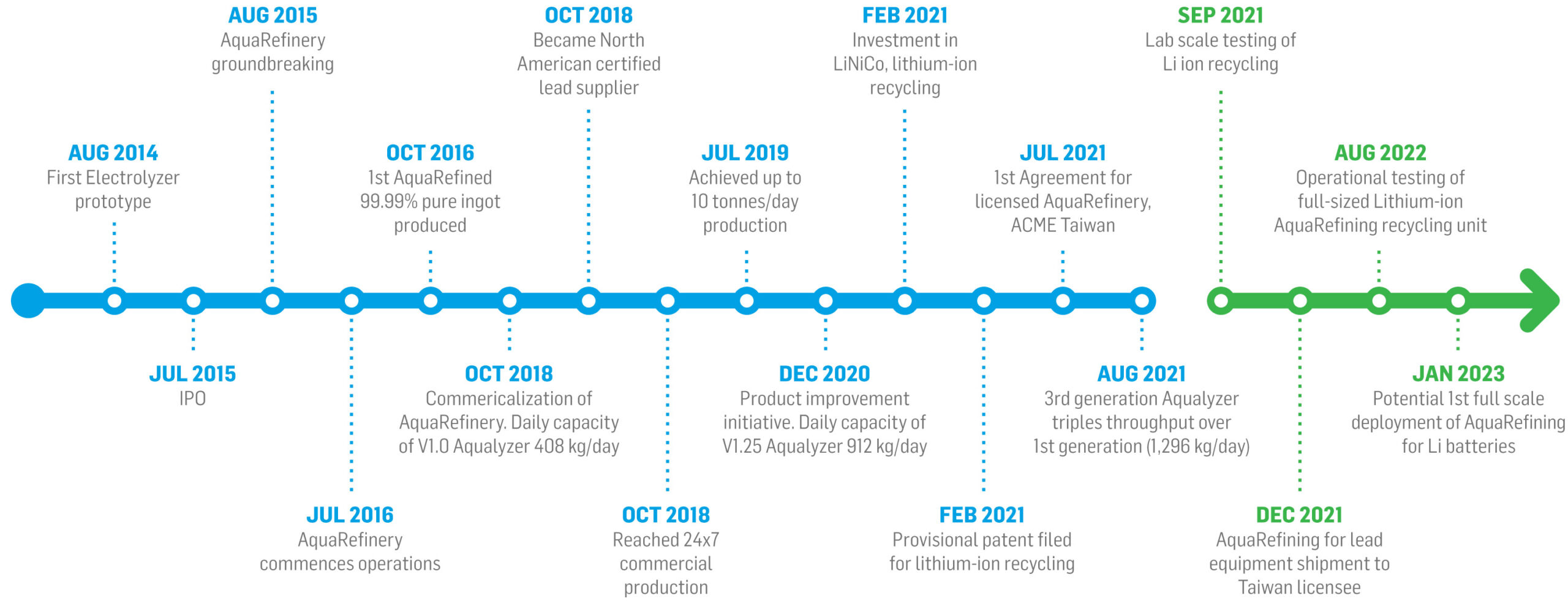
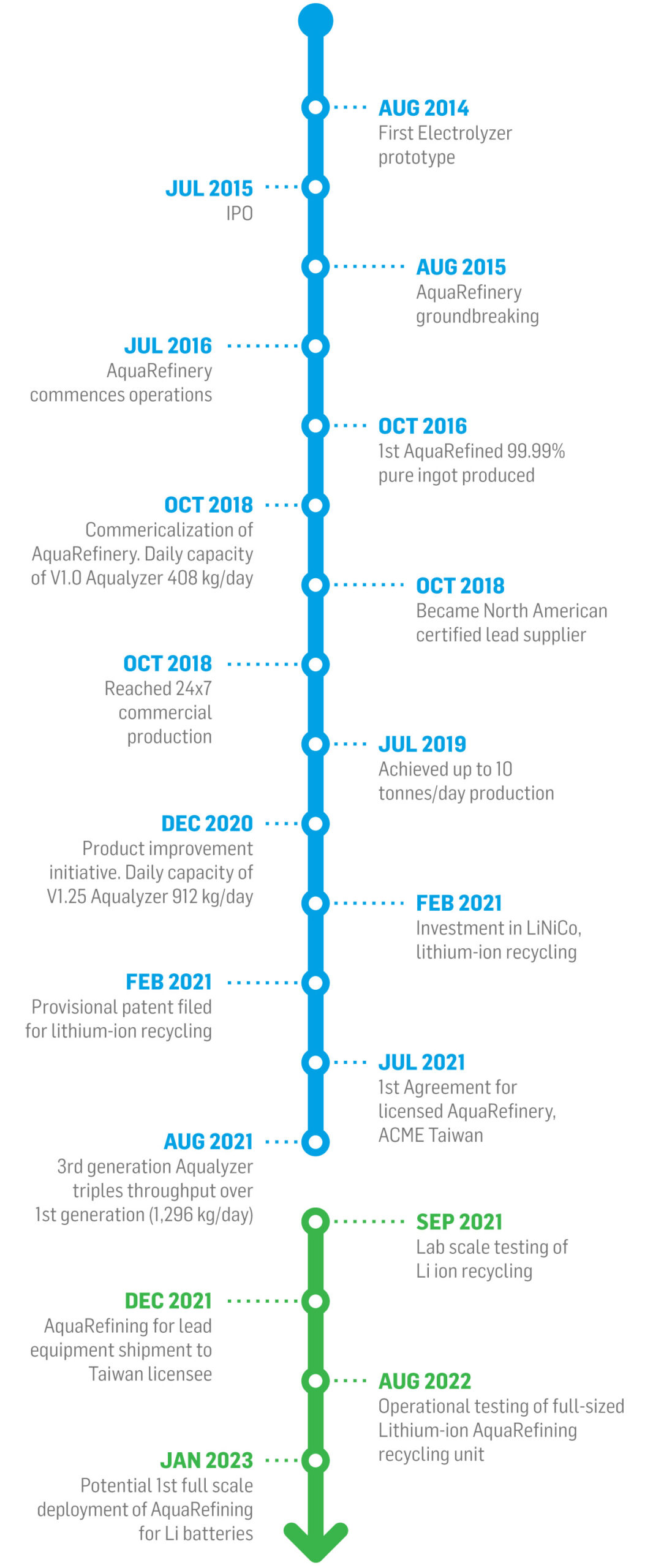
Aqua Metals Initiates $33M Loan Agreement To Fund Commercial-Scale Lithium Battery Recycling Plant
BENZINGA – In a press release on May 15, Aqua Metals signed a non-binding term sheet with “one of the world’s largest privately held companies.” The $33 million credit facility would complete phase one of the company’s Sierra AquaRefining Campus (ARC).
The Hidden Economic And Environmental Cost Of EV Batteries And How To Create A Sustainable Circular Economy
BENZINGA – Benzinga’s new article covers the hidden costs fo EV recycling and how Aqua Metals plans to build a sustainable circular supply chain.
Is EV Battery Recycling Ready For Prime Time?
EV PULSE – From smartphones to EVs to backup power, lithium-ion batteries run much of our modern world. But we’ve got a big problem on our hands when these energy reservoirs wear out, especially in a future where electric vehicles are the norm. Today we’re talking to experts to explore the current state of electric car battery recycling. We’ll learn how it’s done and why it’s so important, and we’ll learn all recycling isn’t necessarily good for the environment.
Aqua Metals joins $4.99M DOE grant project
RECYCLING TODAY – Aqua Metals Inc., a Reno, Nevada-based lithium-ion battery (LIB) recycler will collaborate in a $4.99 million U.S. Department of Energy (DOE) grant project as part of a consortium led by Penn State University. The initiative is aimed at establishing a fully domestic supply chain for critical minerals used in a range of modern technologies, including electric vehicles (EVs) and renewable energy systems.
 Aqua Metals, Inc. (AQMS) News
Aqua Metals, Inc. (AQMS) News
- Aqua Metals Reports Third Quarter 2025 Results and Highlights Continued Progress Toward Commercialization of AquaRefining™ Technology November 12, 2025
- Aqua Metals and Westwin Elements Sign LOI for U.S.-Produced Nickel Carbonate Supply November 10, 2025
- Aqua Metals to Provide Quarterly Business Update on November 12, 2025 November 4, 2025
- Aqua Metals and MOBY Robotics Sign MOU Establishing Collaboration Framework for Sustainable Refining of Deep-Sea Critical Minerals November 3, 2025


